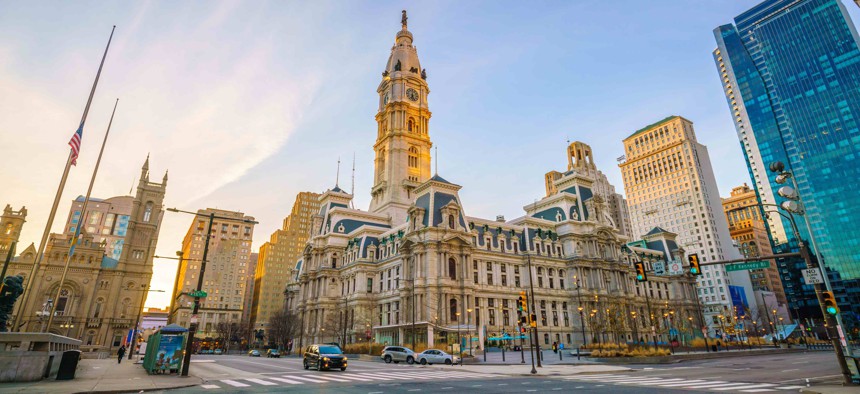A City Looks to Incorporate More, and More Diverse, Input Into Its Budget Process

Philadelphia's city hall. Shutterstock
Philadelphia this week announced a participatory budgeting program for a $1 million pot of money, as well as other initiatives geared toward reducing racial inequities with city spending.
Philadelphia officials said this week that they will take new steps to incorporate more feedback from residents—and from a broader cross section of municipal employees—into decisions about how the city spends money in its upcoming budget.
Part of the plan calls for a “participatory budgeting” program where city residents will be able to offer up ideas for infrastructure investments and then vote on how to spend $1 million on capital projects, with a final vote expected in June of next year. The city’s planning commission is now seeking people to sit on a steering committee to help design this program.
When it comes to getting more input on the broader budget, Budget Director Marisa Waxman said the city would gather feedback through focus groups with community organizations, business leaders and frontline city staff. “Community needs are increasing while revenues are declining. As we work to make difficult budgetary decisions, we need to hear more voices and perspectives,” she said.
Mayor Jim Kenney’s office also has plans to expand and diversify the group of city staff who provide input on funding proposals, including “employees of different demographics and backgrounds for a more inclusive perspective on budget options.”
A related effort will involve the city’s budget office collaborating with a Racial Equity Working Group, with members that include city staff at different levels and across departments.
The city budget office is also laying down some other goals and initiatives around racial equity and budgeting. For instance, setting targets during budget meetings for city spending with businesses owned by minorities, women and disabled people. They also plan to build on a process that requires departments to explain how funding requests and cuts could affect racial disparities.
Philadelphia is also one of 30 cities participating in a Bloomberg Philanthropies/What Works Cities program that aims to help local governments navigate budget difficulties in the coronavirus-era, while also avoiding spending changes that could harm low-income and minority residents.
Bill Lucia is a senior reporter for Route Fifty and is based in Olympia, Washington.
NEXT STORY: The Morality of Canceling Student Debt






